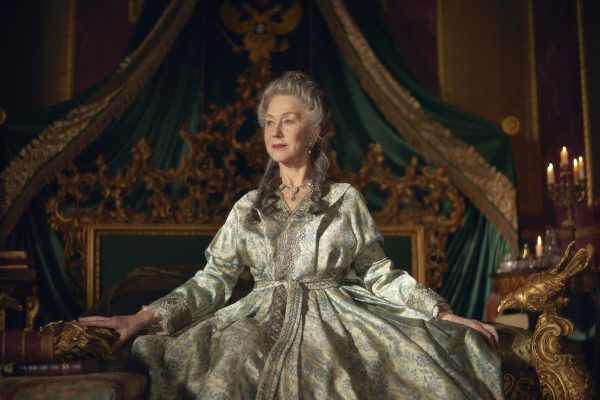Rupert Gregson-Williams is a British composer who has written scores for everything from Wonder Woman through to Catch-22, with more than a few Adam Sandler collaborations along the way. He recently took time out to chat with Martin Carr about his involvement in HBO’s Catherine the Great, whilst revealing a little bit about his frequent collaborator Sandler…..
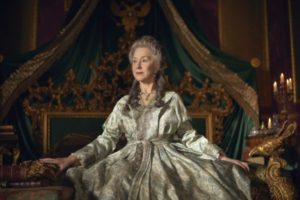
How did you become involved in Catherine the Great initially?
I worked with the director Philip Martin on The Crown for a couple of seasons and he really wanted me to do this. Before Philip sent me the script he wanted me to read a couple of things about Catherine, which is typical of him because he has a large intellect and reads voraciously. So I did some research on Catherine and Potemkin then also looked into the music and philosophy of that time. After that Philip gave me the scripts and off we went from there.
Considering this was a tempestuous time in Russian history what did you discuss in those first creative meetings?
Conversations with Philip went into how Catherine overthrew her husband who was a terrible leader, her friendships with Voltaire and the fact she was stealing from France. From a political point of view she started off being this Obama type figure giving to the people, but by the end had become more like Robert Mugabe (Former President of Zimbabwe). So from these conversations came the idea that we wanted to go on this journey, where Catherine rolled out the Russian federation right out through Turkey. This would provide the scale alongside this deep love story between herself and Potemkin. Creatively I embarked on two things the first of which was this love element, which encompassed their long lasting passion for each other. Then secondly the size which we both agreed was not suited to the contemporary classical music of that time, but leant more towards our love for the liturgical folk music of this period. So the first thing I wrote was some folk music which was not only used in the ball scenes later on but was expanded into a theme. There were also some quite long winded thematic suites for Philip to incorporate and that is how we started.
Thematically political intrigue and emotional turmoil drive the narrative, how did you go about representing these themes musically?
I was not afraid to include some contemporary sounds and spent some time with my colleague Forest blending those with motifs and loops using a solo violin. They were used every time Catherine was planning or plotting any subterfuge, but also combining that with some pulses using synthesizers and modern percussion.
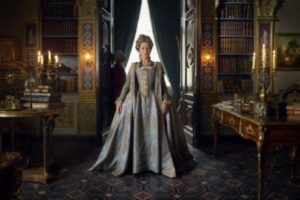
What impact did the choice of location and time period have in a broader sense in your creative choices?
What really got my imagination going was the sacred music of this time so I used a choir, combining both male and female voices whilst also leaning towards low end basso profundo men. If you go into a church on the outskirts of Moscow now, this sound of a liturgical mass would be similar to the way it was sung during Catherine’s reign. What it brings is this almost romantically passionate smokiness where you can almost smell the myrrh burning. So I included that musical colour in quite a bit of the score because it perfectly illustrated those times for me, but also proved flexible enough to help tell this story.
To what extent did the central relationship between Catherine and Grigory shape that final score?
I would say they impacted a fair amount on it because their love theme tied them together through all the hardships, dramas and her numerous other lovers before they were reunited. Even when Potemkin was down in Turkey killing people and he was setting up the naval base at Sebastopol. In his absence they would write to each other and I loved the way Philip Martin made time pass through their communications. This also allowed to underscore these transitions through music and their theme helped me do that.
The show features bold opera alongside moments of musical minimalism. How did you balance tone and character in a series of such extremes?
As we follow Catherine from a middle aged woman through to old age over four hour length episodes, you need to have an overview of the pace and your final objective. Purely because you can often start by scoring a final episode before even considering how the series will open. My objective was always to show this journey where she went through these radical changes, yet empathise with her losing Potemkin while acknowledging how Philip ended it by depicting their secret engagement. However, besides trying to push story along whilst writing copious amounts of music it is always important to underscore without pushing too hard.
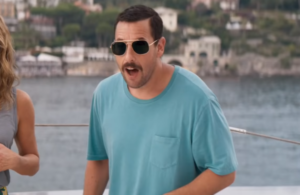
Looking more broadly at your past projects is there a common thematic thread which links the monarchy, DC projects and Adam Sandler movies?
Variety is the spice of life and it is quite interesting writing for Catherine the Great, Wonder Woman and Elizabeth II; all of whom are very powerful and heroic in their own way. With Adam it’s a very different thing, because he firstly wears his heart on his sleeve and is an old friend now because I have been doing this for years with him. On average we have done two films a year for many years which is quite a lot, so I know what he likes. Creatively I know what he is trying to push for and he will be honest with me, so there is trust there but at the same time there is no sugar coating. However, when you work with someone for the first time they don’t know quite where you are coming from, while part of it for me is to invite them into my world and try to build that trust. A lot of the work goes with relationships and I am a diplomat by nature, but at the same time as I have gone on in my career opinions have become more honest which has helped the creative process. In truth I love the variety from doing animation through to dark pieces of television and then a DC superhero movie or an Adam Sandler comedy.
For me the correlation between Uncut Gems, Funny People and Happy Gilmore makes me infinitely curious about his creative choices, begging the question what is Adam Sandler like?
There is no argument that Adam is a talent and also hugely aware of what his audience like. You only need to look at the viewing figures from Netflix for Murder Mystery, but I do feel that Uncut Gems and Punch Drunk Love have made quite a few people sit up. Which of course begs the question why he isn’t doing more of it, but he loves making people laugh and he has a fan base who are demanding his crazy films and he is very loyal.
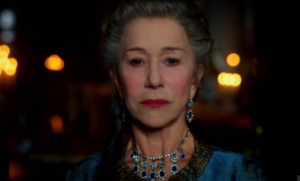
What are your key considerations when signing up to any project?
Firstly, have I really got the time to devote to it then secondly am I doing this because of the project and team or do I feel it will be interesting or challenging. Mostly I like to enjoy who I am working with and that has become quite important over the years.
Can you describe your perfect Sunday afternoon?
My perfect Sunday afternoon would probably not involve music because I do music all the time. So my perfect Sunday afternoon would be at Goodwood race course with a filly I have bred from generations of the same family and watching them race with the family.
Thank you for taking the time to talk to Flickering Myth today and take care.
Catherine the Great is available to stream across numerous platforms now.



